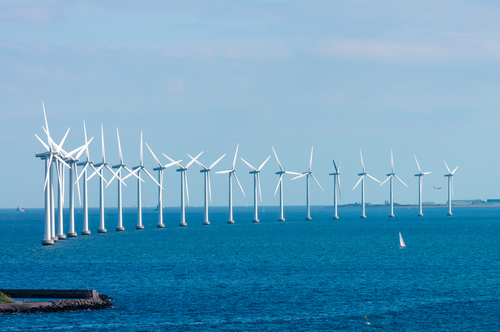From shipbuilding to papermaking to fishing and lobstering, Maine has been able to take advantage of its natural resources to develop rich industries that provide good jobs for Maine people.
Another industry is knocking on our door, and the state should not miss the chance to welcome it in.
This week, the Public Utilities Commission will have that opportunity.
The commission is reviewing a term sheet offered by Statoil North America to build a floating wind turbine in the Atlantic off Bootbay Harbor to provide electrical power for the power grid. It will be taking comments from the public until Thursday.
The proposed plant would have four turbines that could produce 12 megawatts of power, but if successful, could be expanded to a much larger scale.
Statoil has committed to doing work building and maintaining the turbines in Maine, even if they expand operations to other places on the coast.
This, along with a University of Maine demonstration project that is also in the works, are the long-promised introduction to Maine of an industry that would boost our status as an energy exporter, especially of energy from renewable sources that all states in the Northeast have committed to use but don’t have Maine’s ability to produce.
The wind resources offshore are even better than the onshore wind captured by ridge-top turbines.
It blows harder and more regularly out at sea, and a floating turbine can be placed over the horizon so it won’t have the kind of visual impacts that have made onshore wind controversial.
But producing power from offshore wind requires developing a technology that doesn’t yet exist. That’s why it’s important to use these demonstration projects to put theories to the test.
If successful, this would be the birth of another new natural resource-based industry that would provide good jobs and cheap energy for another generation.
The controversy over this proposal has been a shortsighted focus on the immediate cost of the electricity produced by the new plant in the short run.
It will not be able to compete right away with gas or hydropower. But the long-term benefits outweigh that risk, and Maine’s energy regulations cap rate increases and protect consumers. Opportunities like this don’t often come around. Maine should not miss it.
Copy the Story Link
Send questions/comments to the editors.



Success. Please wait for the page to reload. If the page does not reload within 5 seconds, please refresh the page.
Enter your email and password to access comments.
Hi, to comment on stories you must . This profile is in addition to your subscription and website login.
Already have a commenting profile? .
Invalid username/password.
Please check your email to confirm and complete your registration.
Only subscribers are eligible to post comments. Please subscribe or login first for digital access. Here’s why.
Use the form below to reset your password. When you've submitted your account email, we will send an email with a reset code.